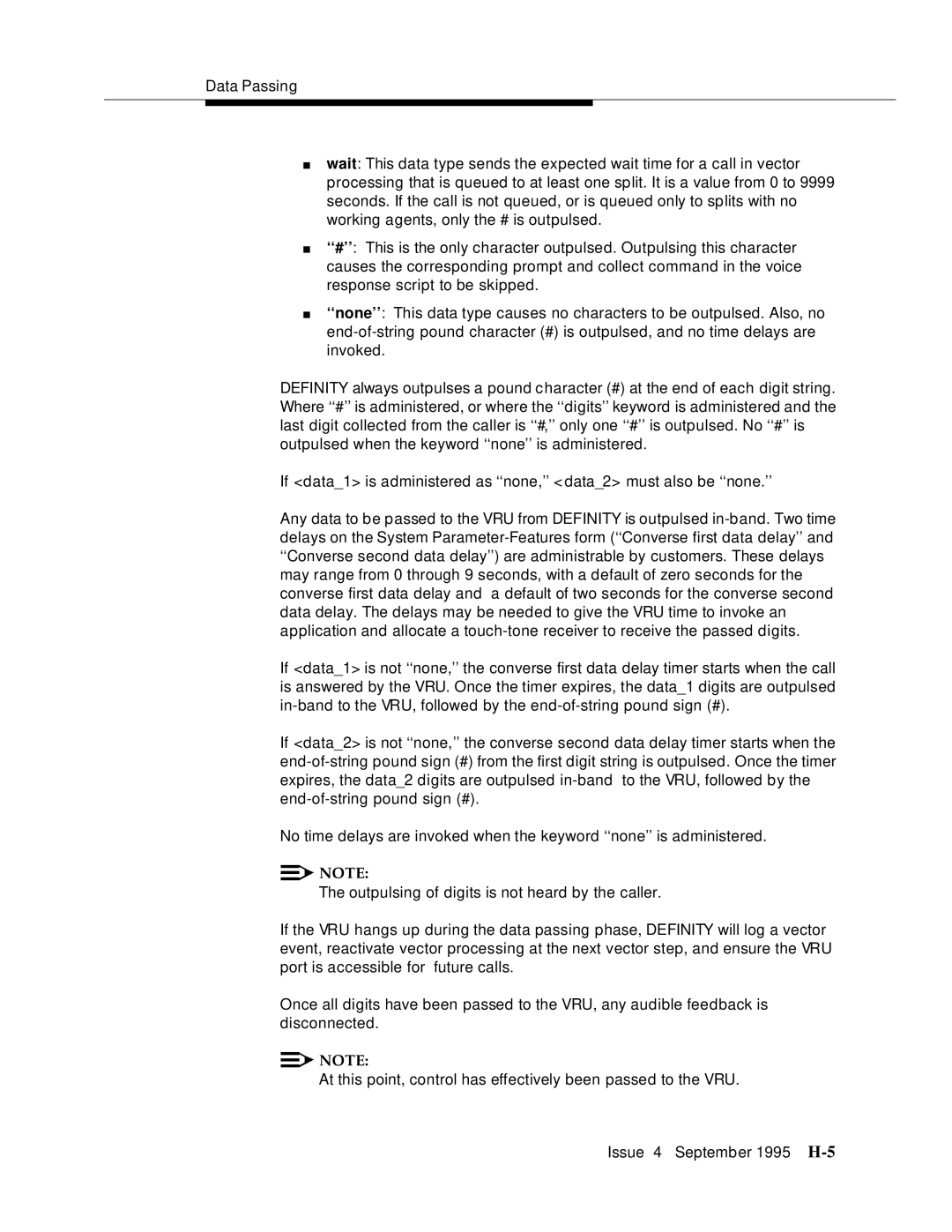
Data Passing
■wait: This data type sends the expected wait time for a call in vector processing that is queued to at least one split. It is a value from 0 to 9999 seconds. If the call is not queued, or is queued only to splits with no working agents, only the # is outpulsed.
■‘‘#’’: This is the only character outpulsed. Outpulsing this character causes the corresponding prompt and collect command in the voice response script to be skipped.
■‘‘none’’: This data type causes no characters to be outpulsed. Also, no
DEFINITY always outpulses a pound character (#) at the end of each digit string. Where ‘‘#’’ is administered, or where the ‘‘digits’’ keyword is administered and the last digit collected from the caller is ‘‘#,’’only one ‘‘#’’ is outpulsed. No ‘‘#’’ is outpulsed when the keyword ‘‘none’’ is administered.
If <data_1> is administered as ‘‘none,’’ < data_2> mustlsoa be ‘‘none.’’
Any data to be passed to the VRU from DEFINITY is outpulsed
If <data_1> is not ‘‘none,’’ the converse first data delay timer starts when thecall is answered by the VRU. Once the timer expires, the data_1 digits are outpulsed
If <data_2> is not ‘‘none,’’ the converse second data delay timer starts when the
No time delays are invoked when the keyword ‘‘none’’ is administered.
![]()
![]() NOTE:
NOTE:
The outpulsing of digits is not heard by the caller.
If the VRU hangs up during the data passing phase, DEFINITY will log a vector event, reactivate vector processing at the next vector step, and ensure the VRU port is accessible for future calls.
Once all digits have been passed to the VRU, any audible feedback is disconnected.
![]()
![]() NOTE:
NOTE:
At this point, control has effectively been passed to the VRU.
Issue 4 September 1995
